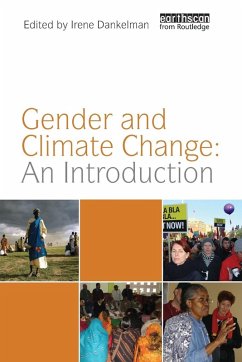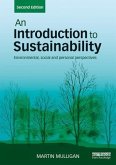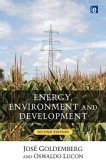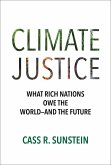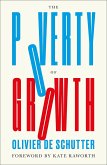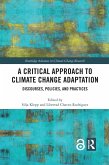Although climate change affects everybody it is not gender neutral. It has significant social impacts and magnifies existing inequalities such as the disparity between women and men in their vulnerability and ability to cope with this global phenomenon.This new textbook, edited by one of the authors of the seminal Women and the Environment in the Third World: Alliance for the Future (1988) which first exposed the links between environmental degradation and unequal impacts on women, provides a comprehensive introduction to gender aspects of climate change. Over 35 authors have contributed to the book.It starts with a short history of the thinking and practice around gender and sustainable development over the past decades. Next it provides a theoretical framework for analyzing climate change manifestations and policies from the perspective of gender and human security. Drawing on new research, the actual and potential effects of climate change on gender equality and women's vulnerabilities are examined, both in rural and urban contexts. This is illustrated with a rich range of case studies from all over the world and valuable lessons are drawn from these real experiences. Too often women are primarily seen as victims of climate change, and their positive roles as agents of change and contributors to livelihood strategies are neglected. The book disputes this characterization and provides many examples of how women around the world organize and build resilience and adapt to climate change and the role they are playing in climate change mitigation. The final section looks at how far gender mainstreaming in climate mitigation and adaptation has advanced, the policy frameworks in place and how we can move from policy to effective action. Accompanied by a wide range of references and key resources, this book provides students and professionals with an essential, comprehensive introduction to the gender aspects of climate change.
'This book gives a profound and informative introduction and presents a wide range of case studies that will inform and inspire scholars, policymakers, advisors and students about the relevance of the interlinkages between gender and climate change. Moreover, it guides us towards appropriate policies and calls us to action.' -Dr. Nafis Sadik, Former Head of the United Nations Population Fund (UNFPA), UN Special Envoy for HIV/AIDS Asia and Pacific
'The book Gender and Climate Change: An Introduction brings together a wide range of perspectives, insights and experiences from women and men from all around the world on the nexus between gender and climate change...IUCN's active involvement in gender mainstreaming and capacity building in environment and climate change will certainly benefit from this rich publication.' -Julia Marton-Lefevre, Director-General , International Union for Conservation of Nature (IUCN)
'The theoretical chapters combined with the case studies from various countries make a convincing argument for the intersectionality of gender and poverty in terms of the effects of environmental challenges, but maybe more importantly, for understanding the role of women in mitigating these effects and in policy formation... Recommended.' -CHOICE
'The book Gender and Climate Change: An Introduction brings together a wide range of perspectives, insights and experiences from women and men from all around the world on the nexus between gender and climate change...IUCN's active involvement in gender mainstreaming and capacity building in environment and climate change will certainly benefit from this rich publication.' -Julia Marton-Lefevre, Director-General , International Union for Conservation of Nature (IUCN)
'The theoretical chapters combined with the case studies from various countries make a convincing argument for the intersectionality of gender and poverty in terms of the effects of environmental challenges, but maybe more importantly, for understanding the role of women in mitigating these effects and in policy formation... Recommended.' -CHOICE

